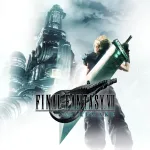
Yes, Final Fantasy VII Remake Is A Complete Game
Final Fantasy VII Remake was first announced back at E3 2015, but later that year Square Enix revealed the whole project would “be told across a multi-part series.” The vagueness of that information at the time allowed a misconception to grow among eager fans; people thought that the first installment would be somehow incomplete, and gamers would be paying full price for only a fragment of a full game. Despite several clarifications over the years regarding the scope of the project, this idea still persists today, right before launch. As someone who has finished Final Fantasy VII Remake, let me be clear: This is a complete game.
When Square Enix revealed that this first installment would only cover Midgar (which spans roughly six hours in the original 1997 game), the fear was that segment would either be insufficient to support a full game, or that it would be padded with excessive filler to artificially draw the experience out. Those concerns are understandable; you deserve to get your money’s worth out of a game – though exactly what that means varies from person to person. For some, it’s as simple as the number of hours it takes to see credits. For others, it’s more about the depth and complexity along the way. On those fronts and more, Final Fantasy VII Remake delivers.
The game’s main campaign took me about 50 hours to finish. That seems to be on the long side compared to some other reviewers, but even a “quick” playthrough appears to be about 30 hours. I know many RPGs are longer than that, but not every game can (or should) be a 100-hour epic. Even a conservative 30-hour estimate is a time investment that thoroughly debunks the “not enough content” complaints.
But numbers on a clock aren’t everything. You should also be having fun with the time you’re spending, and Final Fantasy VII Remake has plenty of meat on its bones. Mastering combat, leveling up your materia, and exploring Midgar all had me hooked. Plus, you have sidequests to follow, optional challenges to complete, and post-game content to tackle after you finish the campaign. These things don’t feel like they’ve been abbreviated or short-changed; their implementation is similar to what we’ve seen in the other full-fledged Final Fantasy entries.
In the most critical assessment of Final Fantasy VII Remake’s scope, you can say that the story is not finished. That is true. It does not tell the full story that the original game told; you won't see the world beyond Midgar. Admittedly, as I said in my review, this means that the narrative feels a bit stretched, and it struggles to establish believable stakes and propel the action forward. Despite those pacing issues, the story doesn't feel unfinished. It is just the first part of a larger tale, and to say that makes the game incomplete as a whole makes no sense. That would be like saying Star Wars is not a complete movie, or that The Fellowship of the Ring is not a complete book. It is just the beginning, but even as it builds toward the bigger narrative, it has its own character arcs and plot threads that are introduced and resolved. The remake takes the original tale and finds natural opportunities to expand on its characters and areas – usually with considerable success.
Not everyone will enjoy playing Final Fantasy VII Remake as much as I did, and that’s okay. My goal here isn’t to defend the quality of the game as a whole. If you don’t like the battle system or the story, you are absolutely entitled to that opinion. Just don’t be confused by the bad-faith argument that it is fundamentally incomplete and therefore not worth playing, because you would be cheating yourself out of one of the most interesting games of the year.

Get the Game Informer Print Edition!
Explore your favorite games in premium print format, delivered to your door.
- 10 issues per year
- Only $4.80 per issue
- Full digital magazine archive access
- Since 1991










